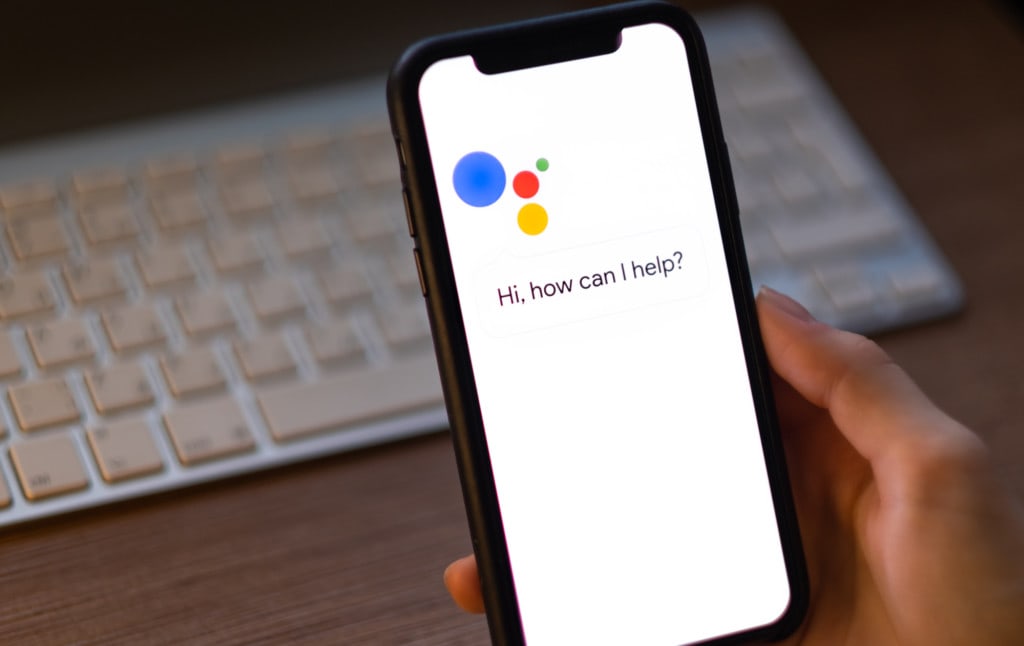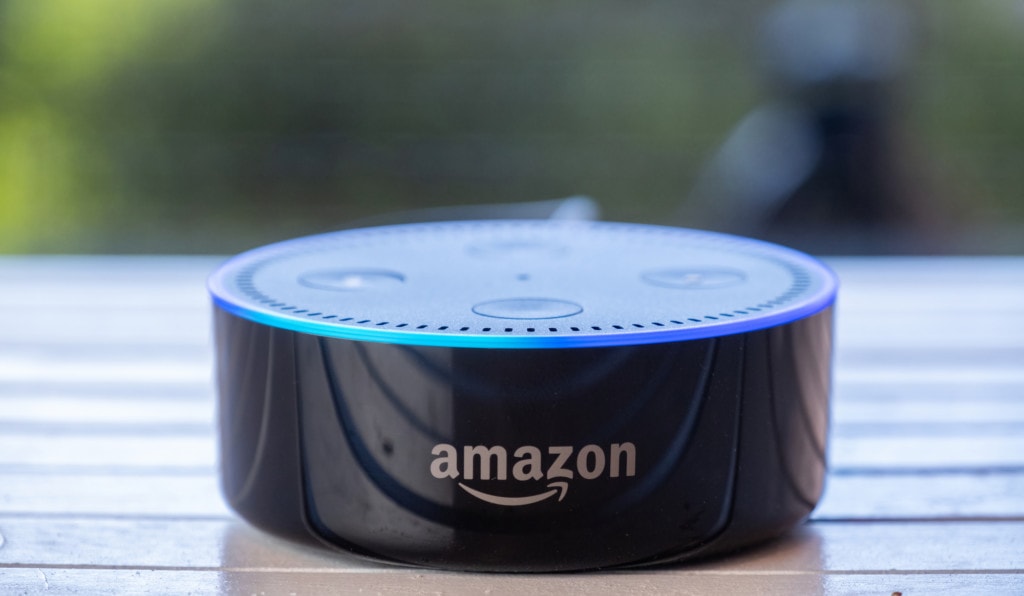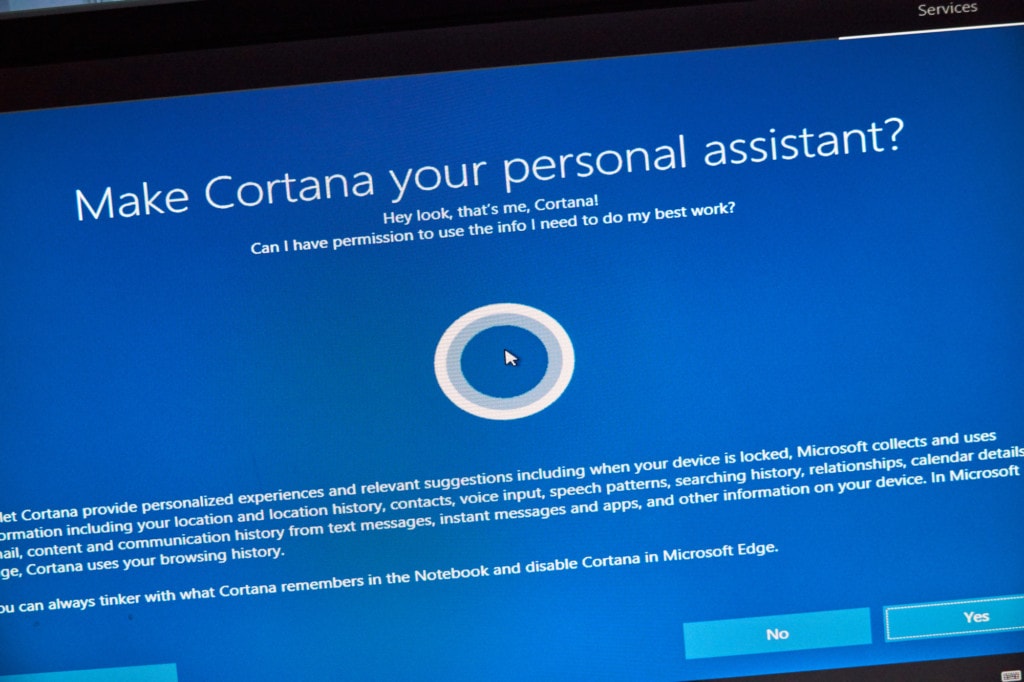Want to invite a third-party into your relationship? If you’re like 31 percent of US households, you already have another voice in the bedroom, and you probably call her Alexa. We’re talking about voice search, of course!
Voice-enabled personal assistants are more popular than ever. According to Statista, there are approximately 3.25 billion digital voice assistants worldwide, and the total will rise to over 8 billion by 2023.
Hey, Siri, “What do these stats mean to an affiliate marketer?”
The way consumers access information has shifted, and to stay relevant, affiliate marketers need to adjust to the changing climate. Voice search will soon overtake key-stroked queries. Those who will succeed in the business will step up to the plate and optimize their website to meet the search demands of their audience.
What Does Voice Search Mean?
Traditionally, internet users would pull up Google on their homepage and type in a search request. Google would then run the query through a series of complex, sometimes top-secret algorithms to find the most suitable website results. However, voice search completely changes how users initiate these requests.
Voice search is essentially a voice-enabled application that allows users to search through the vast listings on the internet without ever needing a keyboard. They simply ask their digital personal assistant a question the same way they would ask a person on the street for directions. All it takes is a voice command to interact with a search engine, website, or app.

The Future Is Now
Although the concept of voice searching feels like something out of a futuristic science-fiction movie, it’s been around for over a decade. Google first launched a voice search feature to its app back in 2008. Apple followed soon after with the introduction of Siri on the iPhone 4S in 2011.
The other tech companies soon saw the instant success of both Google and Apple. It’s not surprising that the next few years introduced even more voice assistants to the market. The year 2014 introduced Microsoft’s Cortana and Amazon Echo’s Alex to consumers. Both Google Assistant and Google Home made their debuts in 2016. And one year later, Samsung launched Bixby, a voice-powered assistant for Galaxy devices.
In the early days, voice-recognition and personal assistant software were more of a novelty than a helpful tool. Countless curious teenagers spent many afternoons asking Siri some of the most outrageous questions, such as “What is zero divided by zero?” or “What does the fox say?” Go ahead; ask away. We’ll wait.
Today, however, the capabilities of voice-enabled software have improved tenfold. Now it’s possible to do nearly anything, from ordering a stockpile of toilet paper to booking the window seat on a flight without ever touching a keyboard.
Credit: Think With Google
What Percentage of Search Is Voice?
As it turns out, people like to hear the sound of their own voice. Voice search has become the fastest-growing online search method. According to Google, here’s why so many digital users adopted this groundbreaking technology so enthusiastically:
• It encourages multi-tasking.
• It’s faster than typing on a keyboard.
• It provides instant answers.
• It simplifies everyday life.
And the usage numbers don’t lie. Entrepreneur explains precisely “Why (and How) You Should Optimize Your Website for Voice Search” with some jaw-dropping facts. They estimate 41 percent of adults perform at least one voice search per day. Furthermore, by the end of this year, nearly half of all search inquiries will be voice-activated.
Everyone, not just the young folks, has embraced this advancing technology. PwC Research reports that 57 percent of users between the ages of 18-24 plan on increasing how much they rely on voice searching. And 61 percent of those who fall in the 25-64 age group also foresee themselves performing more voice searches in the future.
What Is Google Voice Search?
Google Voice Search is a technology that lets consumers speak into their devices to get answers to specific questions. It’s a hands-free alternative to typing a query into the popular search engine.

Activating Google Voice Search is easy. Simply tap the microphone icon next to the search bar in the app and dictate your request out loud. You can also activate voice command with the phrase, “OK, Google.” The system will transcribe your words onto the screen and run the search for you. Many consumers prefer voice search because they speak faster than they can type. As a result, they can get their answer quicker than with a conventional search.
Compatibility across a range of platforms and brands is perhaps the leading reason for Google Voice Search’s popularity. It’s available on both Android and iOS devices. You can also perform voice searches on Chrome, Google Maps, Google Home, and YouTube.
What Is the Best Voice Search?
The leading players in the tech industry all have their own voice search software and devices. Choosing which one is best is like trying to get Apple and Android users to agree on, well, anything. Here are the top voice search platforms and their trigger catchphrases:
• Google Assistant - “OK, Google” or “Hey, Google”
• Amazon Alexa - “Alexa”
• Apple Siri - “Hey, Siri”
• Microsoft Cortana - “Hey, Cortana”
• Samsung Bixby - “Hi, Bixby”
Of the platforms, Google Assistant, Apple Siri, and Samsung Bixby all rely on Google search engine results. Amazon Alexa and Microsoft Cortana, on the other hand, use Bing as their voice search engine. Which platform you decide upon may boil down to your personal search engine preferences.
Out of the list, Google Assistant provides users with the most accurate answers, time and time again. For this reason, many consumers feel it’s the best voice search on the market. The 2019 Digital Personal Assistants accuracy study delivered by Perficient tested 4,999 queries on several devices. Google Assistant answered 88 percent of the questions correctly, placing it at the top of the list for the third year straight.
Credit: Perficient
What Is the Most Popular Voice Assistant?
But the most popular voice assistant isn’t necessarily the smartest. According to Futuresource Consulting, Apple’s Siri holds the coveted title, with over 35 percent of the market share worldwide. The success of the iPhone is what continues to put Siri in the number one spot.
Microsoft’s Cortana falls in the second place position, with 22 percent of the market share. The company plans to boost Cortana’s usage by integrating it into Office 365 and a variety of other productivity tools.
Why Affiliate Marketers Should Pay Attention to Personal Voice Assistants
Voice search dramatically impacts how the average consumer interacts with online brands. Long gone are the days of scrolling through endless pages of Google search results. Today’s buyers want instant solutions to their questions, hoping artificial intelligence will narrow down their choices.
The introduction of voice assistants has changed how people buy things online. Amazon Echo, for example, lets consumers purchase goods with a simple voice command. After asking the device a pointed question, users receive a product recommendation, which they can either accept or decline. As an Amazon Affiliate, you may wonder if this type of purchasing change will impact your sales for better or for worse.
The answer to that question depends on if you know how to leverage voice search. While some of your customers may still sit at their desktops to make a purchase, others will rely on a voice assistant to locate the products they need while on the go.

What Does This Mean for Your Business?
If you want to succeed in the affiliate marketing world, you’ll need to figure out how to incorporate voice search into your websites. Even if you feel like a seasoned pro when it comes to SEO, you’ll find voice optimization is a different kind of beast.
A willingness to adapt as search engines roll out new ranking and rating guidelines is crucial. The most successful affiliates will learn how to implement voice assistants and searches into their marketing plan to help move them to the top of the search results. As you’re about to find out, there is no room for second best when it comes to voice assistants.
How Will Voice Search Affect SEO?
Remember when the goal of SEO was to rank number one for a keyword search? With the introduction of voice search, there is a new winning spot—position zero.
Position zero, also known as a “featured snippet,” places the top result in a box below any sponsored ads and above the organic search results. The text inside the snippet box should answer the user’s question right away. Not only is this a powerful position to land for conventional SEO, but it’s also the only place you want to rank for voice searches.
Why is position zero so critical for voice searches? Whenever a user initiates a voice search, it’s the application’s job to locate the best result instantly. Remember, many users will never look at their screen—they only listen to the answer. Thus, Google only delivers the position zero result for voice searches on mobile devices and smart speakers. Even if you rank on the first page of results, more than half of your target audience will never see your website.
Just recently, Google has started to place a big emphasis on voice search optimization. It won’t be long before websites that don’t support voice-enabled applications will fall down the rankings. As an affiliate marketer, how you accept, utilize and ultimately incorporate voice search may mean the difference between getting lost in the results or securing the coveted position zero.

How Do I Appear in Voice Search?
The only way to appear in voice search is to make your way up the Google rankings until you reach position zero. Anyone who knows the right way to optimize their site can make it to the front page eventually. But you need to produce high-quality, in-demand content if you want to rank as a featured snippet.
Here are the qualities of “snippable” content in the eyes of Google:
- It provides the best, most comprehensive answer to commonly asked questions. Snippets answer the who, what, when, where, why, and how without any fluff.
- It isn’t too wordy. Most snippets are about 50 words long and provide a direct answer to the inquiry.
- It uses visual content to back up the answer. Infographics, videos, and screenshots should accompany your text to help solidify your content.
Without a plan of action, it’s unlikely your website will randomly become the featured snippet. If it does, then you can consider yourself lucky. However, unless you continue to optimize and update your site and content, someone else will sneak up and steal your place in position zero.
Credit: NeilPatel.com
How Do I Optimize My Site for Voice Search?
Voice search optimization must remain at the forefront of an affiliate marketer’s business plan. While the strategies may look similar on paper, optimizing your site for voice searches is much different. You will need to optimize your website content for specific voice commands instead of just popular keyword searches.
In an article entitled, “What impact will voice search have on SEO in 2020?,” Search Engine Watch warns how an increase in voice-enabled searches will disrupt conventional SEO practices. Businesses need to stay ahead of the trend and plan their digital marketing accordingly to fare well in the new climate. Consider these voice search tips as you get started:
Tip #1: Know the Language of Voice Search for Business
Voice searching is quite different from typing a query into a search box. When it comes to search engine optimization, business owners need to consider language. Most users will speak to their device as if it were another person. You need to know the conversational style your target audience uses when talking, and incorporate it into your website content.
Think of voice searches like a two-way conversation with a friend. There should be an organic feel between the question and the provided answer. The more natural your content reads, the higher Google will rank it.
Credit: Backlinko
Tip #2: Plan for Longer Keyword Phrases
While traditional SEO involves optimizing short keyword phrases, voice commands are often much longer. When typing a query, a consumer will often shorten their request. Phrases, such as “pizza near me” or “order best pizza NYC,” are typical. Notice these searches are only 3-4 words long. And they also don’t reflect a conversational style.
Voice searches, however, are much longer. A consumer may ask, “Hey Alexa, where can I order a deep dish pizza in New York City?” Notice this question is much more casual and detailed. Unlike conventional SEO, the average Backlinko voice search is 29 words in length. To compensate for the difference, you should optimize your content with long-tail keywords. Besides, most businesses find they get higher conversation rates with longer keyword phrases.
Tip #3: Include Question Words in SEO Strategies
The majority of voice searches are questions. And unlike typed queries where the user may leave out question words, these words are valuable in voice optimization. Who, what, when, where, why, and how should all be a part of your SEO strategy.
Long-tail keywords are less competitive than shorter phrases, but they are still critical. Answering the searcher’s question with clarity and plenty of detail will help your affiliate website rank higher in Google’s eyes.
Tip #4: Ensure Your Website Is User-Friendly
It doesn’t matter how much time you spend studying natural language or optimizing long-tail keywords if your website isn’t responsive. While voice search and video go hand-in-hand, including videos only works if the content loads quickly. Not only are sluggish sites a turn off for consumers, but Google also ranks them poorly.
An ideal website should load fast and look organized. Remove any unresponsive scripts and optimize images for improved response time. Use bullet points and headings to your advantage to make your content easier for Google—and your audience—to read.

Tip #5: Consider Building an Alexa Skill
More than 60 million Americans own at least one smart speaker, with the average household owning 2.6 devices. Affiliate marketers can put this information to good use and build an Alexa Skill to promote sales. Skills are essentially mini-apps for the Amazon Echo. Each skill teaches the device a new service or specialty.
Depending on your niche, creating a skill may help promote your content and increase affiliate revenue. For example, if your niche is pet care, you could build a skill that answers important questions about pet health, food, or training. Whenever someone interacts with your skill, they get the same content they would find on your website. The skill could even recommend helpful pet products, which they could purchase directly from you via Alexa. Think of it as a different way to advertise your business without a computer.
What Is Searched the Most on Google?
It may surprise you to learn that the most popular Google searches are for brands, according to ahrefs.com. The keywords Facebook, YouTube, Amazon, and Gmail fill the top spots. Other popular search terms include weather, news, and maps. Of course, there’s an entire list of NSFW words that we’ll leave to your imagination.
No two people head to Google with the same search in mind, and the trending searches change each day—sometimes every minute. As an entrepreneur, it’s crucial to stay on top of what your audience wants to know. If you can guess their searches before they happen, you’ll be able to optimize the keyword phrases.
It’s important to remember, however, that voice searches are different than typed ones. While a person may search for a few keywords with their keyboard, they’re more likely to dictate a full sentence to their voice assistant. Always optimize long-tail keywords if you want to become the featured snippet for a spoken search.
Credit: USA Today
Are Google Voice Searches Safe?
Internet privacy and security are a growing concern for many Americans. George Orwell created the fear of Big Brother, and as technology continues to advance, these concerns may have some validity.
Consider this: Siri may be able to hear everything you say. As with all of the voice assistants, Siri patiently waits until you call her name to start talking to you. But, this also means she must listen to everything else you say to know when you utter those magical words.
Some people claim they started receiving ads on social media only after having a conversation about a product with a friend. They believe “Google really is listening and recording on apps.” And as USA Today reported, “It can actually record every word you say to it – whether you use the wake word or not.”
Now, no one has been able to prove either way if your devices are covert spies. However, Google keeps a record of your searches to help personalize your results down the road. It’s through this data collection that Google can create targeted ads or local recommendations. The search engine giant probably knows more about you than your spouse.
Google admits to storing all of your search data, whether typed or voice. And every user opts into this type of tracking when they agree to the terms of service. The search engine stores most of the data indefinitely unless you manually remove it. However, you can log into your Google Account at any time to delete your saved activity.

Is Voice Search the Future?
Technology has one goal in mind—to become as life-like or natural as possible. Consider a television, for instance. The first generation was groundbreaking, but the quality wasn’t very good at all. As a civilization, we have grown from grainy, black-and-white screens to incredibly realistic, 3-dimensional pictures.
The same concept is true when it comes to how we search the internet. When search engines first entered the market, they were only capable of performing a limited number of tasks. As their technology advanced, so did the results. Voice search lets people communicate with their devices as if they were actual people. And the responses often surpass what your best friend could tell you.
As we look further into the future, one can only imagine how Google will continue to turn into an even more conversational, human-like system. But there’s one thing we know for sure; voice searching is a huge leap in that direction.
The Bottom Line
Voice searches are on the path to surpass typed queries—those looking to profit from it need to optimize their websites to keep up with the changes. Yes, affiliate marketing will survive this latest evolution of Google. However, business owners must change their SEO strategy to incorporate this new way of searching.
The tools and tactics of business are always changing. But there are only two things you need to do to grow incredibly wealthy - and those things never change. The first is to build a business, and the second is to invest the profits. That’s how you create change in your life, your community, and your world. If that’s what you want, too, you’ll love this free training we’ve created for you. Check it out, and let’s go create a better world together!












